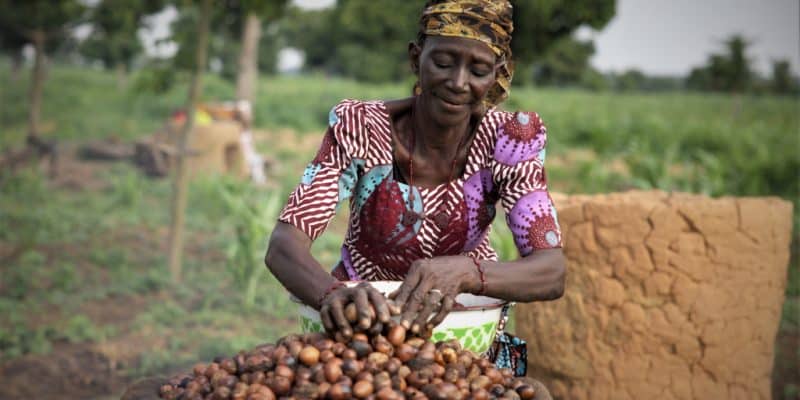Between 2023 and 2025, the Global Shea Alliance (GSA) will support sustainable shea production in Togo and Burkina Faso. At a total cost of $1.3 million, co-financed by the African Development Bank (AfDB), the initiative aims to increase agricultural yields and climate resilience for 7,500 women in these West African countries.
Shea butter production will be ecologically responsible over the next few years in West Africa. The Global Shea Alliance (GSA) recently signed an agreement worth $1.3 million (715 million CFA francs) with the African Development Bank (AfDB) through its African Climate Change Fund (ACCF). According to its coordinator Rita Effah, the funding will allow the implementation of the project “Towards climate resilient shea communities in Togo and Burkina Faso”.
Indeed, the shea tree, also called “the tree of 1000 virtues”, “the butter tree” or “women’s gold” is essential for the populations of the sub-region because of its therapeutic and cosmetic uses (face and skin care). This project should therefore enable the economic empowerment of Togolese and Burkinabe rural women while strengthening soil protection.
“The goal is to empower local communities with the skills and resources they need to achieve sustainable shea production and access alternative livelihoods through environmentally friendly processing practices. Climate plays an important role in the lives of rural women, as it significantly affects the most important source of employment for them, agriculture,” explains Simballa Sylla, AGK’s president.
Read also-INDIAN OCEAN: with UNDP, Agri Resources promotes sustainable vanilla farming
The Ghana-based organization also accompanies the shea value chain in the capital city of Accra. There, AGK partnered with the environmental organization A Rocha Ghana in 2020 to build a community-based organic shea butter production plant near Mole National Park. The facility, which received financial support from the French Development Agency (AFD) and the United States Agency for International Development (USAID), is equipped to improve the quality of shea butter and reduce the environmental footprint and health risks associated with processing this vegetable oil.
Benoit-Ivan Wansi






